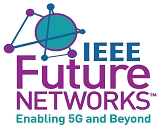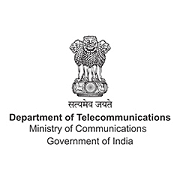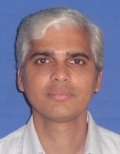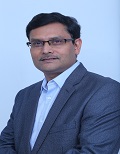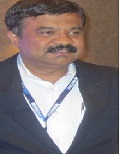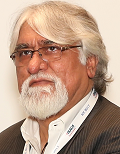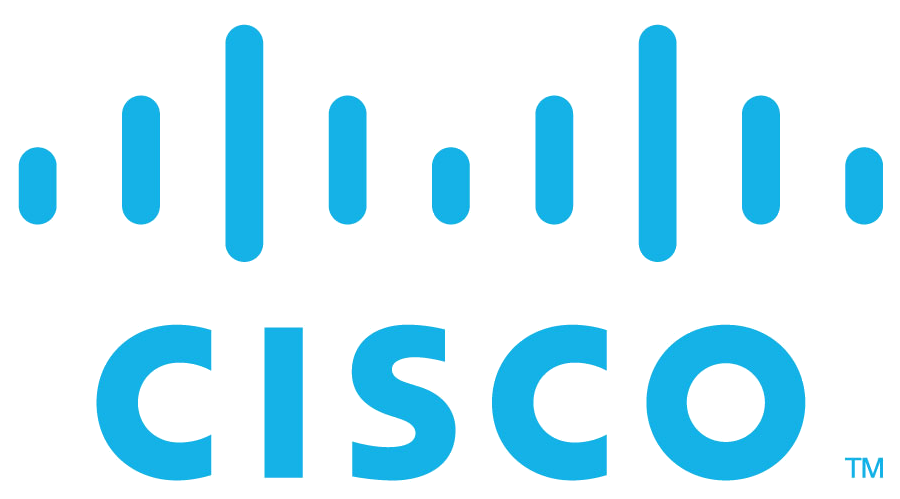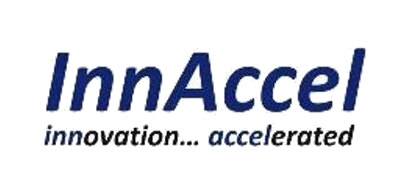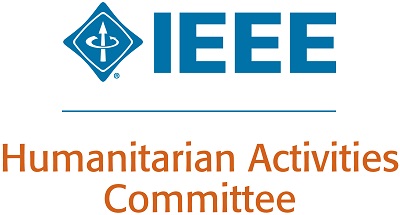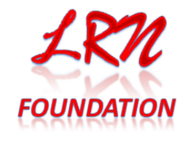Workshop on "Last-mile" Challenges and Standardization Opportunities in Smart Infrastructure
Workshop Date: 7th January 2020
Background
The world is undergoing an unprecedented pace of urbanization; and if present trends continue, the world urban population will rise at a phenomenal rate in the next few years. This rapid scale of urbanization will need smarter, sustainable cities based on smart infrastructure that are able to effectively and efficiently manage city utilities and services for its citizens. Electric grids, water distribution systems, transportation systems, communication infrastructure, waste treatment plants, commercial buildings, hospitals, homes, and education centers are existing vital facilities and infrastructure components that shape the liveability standard of a city. In the future, newer infrastructures and services will also bring benefits and create opportunities of added value to its citizens. An efficient and effective management of these existing and new city-wide systems’ requires digital transformation and harmonization of its traditional infrastructure.
Rationale
The 3rd edition of LastMileS workshop, to be held in conjunction with COMSNETS 2020, is a cross-cutting forum where technology, techno-commercial and governance aspects will converge under the overarching theme of “Last-mile Challenges and Standardization Opportunities in Smart Infrastructure”. LastMileS will bring together researchers, practitioners, smart-city stakeholders and thought-leaders, in a collaborative discussion mode, to present their latest innovations in the area of an appropriate “last-mile” communication, networking, and data transfer framework; with a deep focus on enabling digital transformation and harmonization of smart infrastructure to help bring down the CAPEX and OPEX in the upcoming smart cities deployments around the world.
The workshop format will include invited talks and peer-reviewed paper presentations. Hence, we welcome submissions that provide a systems approach to smart infrastructure; which address the complex interplay of various technical aspects within the “last-mile” service delivery purview at large scale. While the work may not necessarily be addressed at large scale, however, the scope of the idea and solutions must be able to address the last-mile problems at large scale. We are particularly looking for papers reporting on experimental results of deployed systems, summaries of challenges or advancements, measurements, and innovative applications; with a clear focus on standardization elements.
Topics of interest include, but are not strictly limited to:
- Practical experiences from “large-scale, city-wide” deployments, measurements, case studies, and applications
- System design/architectural nuances and best practices for “large-scale city-wide” deployments
- Interoperability and harmonization challenges in “large-scale city-wide” systems, and standardization models
- “Last-mile” system (i.e., device, network, topology, data, configuration, mobility, and fault) management and troubleshooting at “large-scale”
- Programming and debugging methodologies at “large-scale”
- Dependability, adaptation, intermittency, and assembly methodologies at “large-scale”
- Trust, security, privacy, and authentication methodologies at “large-scale”
- Energy harvesting/scavenging methodologies and best practices for “decade long” operational life-time
- Middleware design methodologies for “large-scale” systems
- Edge-driven computing models and light-weight virtualization for heterogeneous data traffic and QoS requirements
Two types of submissions are solicited:
- Full papers: Maximum length of 6 pages, including title, author list, abstract, all figures, tables, and references. At least one author of each accepted paper must register for the workshop and present the paper.
- Vision abstracts: Extended abstract that offers a future vision for a research and standardization direction in this space, of maximum length of 3 pages. The abstract should include title, author list, narrative (the vision statement), and references. At least one author of each accepted abstract must register for the workshop and participate in a future visions session. The session will include short talks by authors of accepted abstracts, followed by discussion.
Submission Guidelines
- LastMileS invites submission of original work not previously published, or under review at another conference or journal.
- Submissions (including title, author list, abstract, all figures, tables, and references) must be no greater than 6 pages in length for Full papers, and must be no greater than 3 pages in length for Vision abstracts. A minimum number of 3 pages are required.
- Reviews will be single-blind: authors name and affiliation should be included in the submission.
- Submissions must follow the formatting guidelines as given on IEEE Website; and those that do not meet the size and formatting requirements will not be reviewed.
- All papers must be in Adobe Portable Document Format (PDF) and submitted through the LastMileS Workshop submission site on EDAS.
- All workshop papers will appear in conference proceedings and submitted to IEEE Xplore as well as other Abstracting and Indexing (A&I) databases.
Papers can be submitted through EDAS : Click Here
Important Deadlines
| Paper Submission | |
| Notification of Acceptance | |
| Camera-ready Submission | |
| Mock Presentation | |
| Workshop Date | 7th January 2020 |
Keynote Speakers
Sarma Gunturi
Texas Instruments, Bangalore, IndiaVisit Homepage
5G has the potential to deliver multi-Gbps peak rates, ultra-low latency, massive capacity, and more uniform user experience. 5G wireless base-stations use massive MIMO (multiple input, multiple output) antennas that have very large numbers of antenna elements to send and receive more data simultaneously. 5G also uses small cell base-stations to complement the wide area coverage by providing coverage in densely populated areas to deliver the last mile access. However, setting up new or upgrading the existing 4G infrastructure to support these new and varied applications can lead to significant increase in network costs. To enable affordable and low cost applications, multiple innovations in cost, power consumption and form factor are required while supporting wider bandwidth and high performance. This talk focuses on the challenges associated with different transceiver architectures for 5G wireless base-stations to reduce cost and power consumption.
Sarma Gunturi is a Senior Member of Technical Staff with the Analog Signal Chain department at Texas Instruments, Bangalore. He received his B.Tech. degree in Electrical Engineering from IIT Bombay, in 2000, and M.S. in Electrical Engineering from the University of California, Los Angeles in 2002. At Texas Instruments, his work has been in the field of Signal Chain Architectures, Signal Processing Algorithms and Communication Systems on 4G/5G transceivers, WLAN and Heart Rate Monitoring.Sarma has developed architectures/algorithms for various highly integrated high performance and low power consumption system-on-chip solutions, for mobile handsets and wireless base stations. He holds over 15 patents with the US Patent Office and is the recipient of the INAE Young Engineer Award in 2014.
Aloknath De
Vice President and CTO, Samsung IndiaVisit Homepage
This keynote talk will explain how globally 'Smart Habitat' is coming up: Smart Home, Buildings and Cities. We will elucidate the smart technologies that are fueling the growth in this arena. This talk will cover Connectivity inside the Home/Building connecting plethora of Intelligent Devices. And we will address how "last mile" could be bridged to have a seamless experience for users
Dr. Aloknath De is Corporate Vice President of Samsung Electronics, S.Korea and Chief Technology Officer of Samsung R&D Institute India (SRI-B). Dr. De has over thirty years of industrial and research experiences including BEL, Nortel (Montreal), Hughes and with ST-Ericsson where he was R&D Director and Country Manager. During 2005-11, he has served as Visiting/Adjunct Professorship with IIT-Roorkee and IIT-Delhi. He holds B.Tech. from IIT, Kharagpur; M.E. from IISc, Bangalore; and Ph.D. from McGill University, Montreal. He is a recipient of ‘Alexander Graham Bell Prize’ in Canada. He has received ‘IETE Memorial Awards’ for distinguished contributions in Electronics and Communications. He also received IDC Insights Award for Innovation in Telecom, Zinnov ‘Intrapreneurship of the Year’ award and has been considered as one of ‘Most Influential CIO/CTOs of India’. He is a Senior Member of IEEE and a Fellow of IE, IETE and Indian National Academy of Engg (INAE). He is also cited in Marquis’ Who’s Who in the World. He promotes science and technology linkage and is actively involved in patenting intellectual property and building innovative products.
Invited Speakers
Mohan Saravanan
Ericsson, IndiaVisit Homepage
As the world population increases at a steady rate, providing clean water to the masses in an efficient manner is one of the biggest challenges faced in the modern era. Controlling the flow of water so that it doesn’t go to waste is another challenge. Water flow is generally managed through locks and manually controlling these gates often turn out to be a long-winding process. Due to recent technological progress and increased connectivity in rural areas, a system of IoT devices proved to be an alternative for managing the water grid.
The last mile networking for Internet of Things (IoT) applications using short-range networks in ISM band such as IEEE 802.15.4 LoWPAN mesh, WiFi, Zigbee, Bluetooth Low Energy have been widely studied in the last few years with the demonstration in many industrial scenarios. However, the reliable connectivity in last-mile scenarios like individual energy meter in the home area network (HAN) connecting to the data concentrator in turn to the meter data management systems (MDMS) through WAN connectivity is a challenge in certain areas.
We present a prototype implementation of end-to-end LoRA connectivity for the Smart Water Grid and Metering solutions and discuss the features of analytics in a cloud platform as a Knowledge Sharing resource.
Saravanan received the M.S. and Ph.D. degrees in Computer Science and Engineering from Indian Institute of Technology Madras. He has a background in Research & Development in telecommunication business and other relevant areas with an experience of over 20 years. He has been working with Ericsson for the past 10 years in Global Research division and filed more than 40 patents and published 80 research papers in various International Conferences and Journals. Attended and presented in many International conferences and Research Forums. He has experience in developing research prototypes relevant for customer business. His interest lies in the fields of Data Mining, Text Mining, Information Retrieval, Mobile Social Network Analysis, IOT and Big Data Analytics, Explainable AI, Machine Reasoning, Fog and Edge computing. He has guided more than 100 research interns and mentored for PhD Scholars from different universities.
Satheesh K. Perepu
Ericsson, IndiaVisit Homepage
Smart traffic management systems are important to meet the current requirements of the rapid urbanization. Communication is one of the most important factors in any smart traffic management system. Quite often, we see the vehicles communicating with another vehicle or traffic operator to ensure smooth traffic movement or to prevent an accident. In this case, the latency of the network plays a critical role as the vehicles take decision based on the signal received from other vehicles/operator combined with their sensors output. This talk focuses on the framework of these systems and discusses on how the latency of the systems can be decreased effectively by employing 5G communication in the network.
Satheesh K. Perepu received the B.Tech. degree in instrumentation engineering from Sri Venkateswara University, Tirupathi, India, in 2008, the M.Tech. degree in process control from the National Institute of Technology, Trichy, India, in 2010, and the Ph.D. degree in systems and control from the Indian Institute of Technology Madras, Chennai, India, in 2017. He is currently a Researcher in machine intelligence with Ericsson, Chennai. His current research interests include optimization, control, and machine learning.
Jayachandara Dakala
Technical Architect, PathPartner Technology Pvt Ltd, Bangalore, IndiaVisit Homepage
Smart city challenges, like increased traffic, risk to public safety, effective law enforcement and the smart environment challenges on improving personalized services such as health care and home environment need person identification. Face recognition has proved to be useful and amicable biometric for smart cities and smart environment challenges. In this talk, we review the use cases pertaining to smart cities and smart environment highlighting use case specific requirements on Face recognition. We describe the open challenges in anti-spoofing and standardization to make face recognition a fool proof system. For applications with demand for low power, we show that with proper considerations on training data, cost function, and model architecture we could build a low-complex CNN model with reasonable accuracy.
Dakala Jayachandra received B.Tech degree in electronics and communications engineering from NIT, Warangal, India in 2003, and PhD in Electrical and Electronic Engineering from Nanyang Technological University, Singapore in 2015. Currently, he is heading the ADAS vision team working on driver monitoring system at PathPartner Technology Pvt Ltd, India. Broadly, his experience and research interests include the applications of signal and image processing, pattern recognition and computer vision.
Narang N. Kishor
Founder, Mentor & Principal Design Architect, Narnix Technolabs Pvt. Ltd., IndiaVisit Homepage
The new paradigms like green movement, DC power, renewables, micro-grids, networking devices, smart homes, smart buildings, smart grids and smart cities have given rise to a new much larger paradigm of Smart Infrastructure. The recent Smart Cities initiatives globally have motivated everyone to leverage the ICT to improve the operational efficiency in various, rather all the aspects of Smart Cities, be it Utilities, Citizen Services or the Critical Infrastructure deployments.
But true convergence is still eluding because of lack of harmonized standards in the respective ecosystems. The smart nodes of one network cannot talk to smart nodes of the other networks. A wide array of ‘proprietary systems/solutions’, or ‘systems/solutions with very limited interoperability’ are being deployed in each application areas of home automation, building automation, industrial automation or even the infrastructure automation needs of the society. Each application ecosystem like smart home, smart building, smart street lighting and smart grid have, over the years, developed their own respective sets of standards and last mile communication protocols. In fact, some ecosystems like smart grid, smart building and smart home have multiple sets of standards and protocols being advocated as the most appropriate for their respective applications.
Architectures and framework designs provide umbrella guidelines to the stakeholders of respective components and layers of the overall smart infrastructure paradigm. However, it is imperative to work on sufficiently fine granularity of each component and layer for standardization, as well as, harmonization, for ensuring the interoperability among various similar components addressing different applications at semantic as well as syntactic levels. Further, the standards being adopted for the smart homes or smart buildings deployments must be harmonized with standards in all other relevant ecosystems and integrated smart infrastructure paradigms.
The talk shall present a “Reference Architecture” for the Unified & Secure Last Mile Communication Protocol Stack for Critical/Smart Infrastructure that shall address the above mentioned concerns of reducing the Carbon Footprint of the ICT Infrastructure and making it Secure & Resilient along with bringing the comprehensive harmonization, standardization & interoperability in the diverse Smart Solutions leading to optimization in operational efficiency & Life Cycle Cost of the Smart T Infrastructure. This Reference Architecture is being developed as a National Standard in Smart Infrastructure Sectional Committee LITD 28 in Bureau of Indian Standards, the National Standards Body of India.
Kishor is Technology Consultant, Mentor & Design Architect in Electrical, Electronics & ICT with over 40 years of professional experience in education, research, design and consulting. Over 30 years of hardcore Research and Design Development Experience in Solutions, Systems, Products, Hardware, Software & Firmware (Embedded Software) in fields of Industrial, Power, IT, Telecom, Medical, Energy and Environment, and over 10 years of Consultancy Experience to different segments of business & industry. He has over 200 Research & Design Mentees in the Electronics, ICT & STI Ecosystems. Professionally, he is an Electronics Design Engineer practicing design & development of a wide spectrum of Products, Systems & Solutions as an Independent Design House – NARNIX since 1981.
For last 10 years, deeply involved in Standardization in the Electrical, Electronics, Communication and Information Technology Domains with focus on Identifying Gaps in Standards to address Interoperable Systems & Solutions Deployments and bring Harmonization by defining standardized interfaces to ensure End-to-End Interoperability. Currently leading the Standardization activities as the Chairman of Smart Infrastructure Sectional Committee LITD 28 in BIS the Indian National Standards Body, Vice Chair – Strategy & Convenor – Reference Architecture WG in IEC Systems Committee on Smart Cities, Project Leader – IEC TS 63188 ED1 – Smart Cities Reference Architecture Methodology, Project Leader – IEC 63205 ED1 – Smart Cities Reference Architecture, Member Steering Committee – OCEANIS (The Open Community for Ethics in Autonomous and Intelligent Systems) & Co-Editor – ISO 30145 on Smart City ICT Reference Frameworks.
Currently, Kishor is developing a Comprehensive “5G inclusive ICT Architecture for Critical Infrastructure” and leading the 5G Application Layer Standards development in India.
Workshop Schedule
| Time | Activity | Talk Title & Speaker | |
| 09:00 AM - 09:05 AM | Welcome from Chairs |
||
| 09:05 - 10:30 AM | Session 1: Wireless, Edge, 5G | ||
| 09:05AM - 09:25 AM | Paper - 01 | Learning from Peers at the Wireless Edge |
|
| 09:25 AM - 09:45 AM | Paper - 02 | Smart City Renovation using SDN Framework |
|
| 09.45 AM - 10.30 AM | Keynote Talk - 1 | Integrated Transceiver architectures for 5G wireless base stations Dr. Sarma Gunturi, Texas Instruments, Bengaluru, India |
|
| 10:30 AM - 11:00 AM | Tea/Coffee Break | ||
| 11 AM - 1:00 PM | Session 2: IoT and Smart Things Networks | ||
| 11:00 AM - 11:45 AM | Keynote Talk - 2 | Smart Habitat: Last-Mile Connectivity Dr. Aloknath De, Vice President and CTO, Samsung India |
|
| 11:45 AM - 12:15 PM | Invited Talk - 1 | Reaching the Last-Mile relate to Sustainability in Knowledge Sharing - Water and Energy Dr. Mohan Saravanan, Ericsson, India |
|
| 12:15 PM - 1:00 PM | Invited Talk - 2 and Short Talk | Face Recognition: Challenges and Issues in Smart City/Environments Dr. Jayachandara Dakala, Path Partners, India |
|
| 01:00 PM - 02:00 PM | Lunch Break | ||
| 2:00 - 3.30 PM | Session 3: Sensors, Smart City, Industry networks | ||
| 02:00 PM - 02:20 PM | Paper - 03 | Design of Smart Roads - A Vision on Indian Smart Infrastructure Development |
|
| 02:20 PM - 02:40 PM | Paper - 04 | In Sync with Today's Industrial System Clocks |
|
| 02:40 PM - 03:00 PM | Paper - 05 | Findings from an experimental study of student behavioral patterns using smartphone sensors | |
| 03:00 PM - 03:30 PM | Invited Talk - 3 | 5G based Smart Traffic Management System Dr. Satheesh K. Perepu, Ericsson, India |
|
| 03:30 PM - 04:00 PM | Tea/Coffee Break | ||
| 04:00 PM - 04:30 PM | Invited Talk - 4 | India’s approach to demystify the Last Mile Communication Conundrum in Smart Infrastructure - through a Unified Stack Architecture Standard Narang N. Kishor, Narnix Technolabs Pvt. Ltd., India |
|
| 04:30 PM - 05:30 PM | Panel Session | Topic: Standardization and Technology Challenges in Smart Infrastructure Deployments and Last-mile Systems |
|
| 05:30 PM - 05:45 PM | Open Floor for Information Sharing/Questions/Comments/Discussions | 05:45 PM - 06:00 PM | Closing remarks from Workshop Chairs |
Program Committee:
Ravishankar Chamarajnagar, VMWare, USA
Arpan Chattopadhyay, IIT Delhi, India
Sumit Darak, IIIT Delhi, India
Susan Elias, VIT Chennai, India
Mohammad Asadul Hoque, East Tennessee State University, USA
Shubham Jain, Old Dominion University, USA
Paul Mitchell, University of York ,UK
Mukulika Maity, IIIT Delhi, India
Smruti Ranjan Sarangi, IIT Delhi, India
Rajshekhar Sunderraman, Georgia State University, USA
Bernd-Ludwig Wenning, Cork Institute of Technology, Ireland
Workshop Co-Chairs
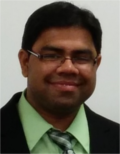
Ashwin Ashok
Georgia State University, USA

Seshan Srirangarajan
IIT Delhi, India



